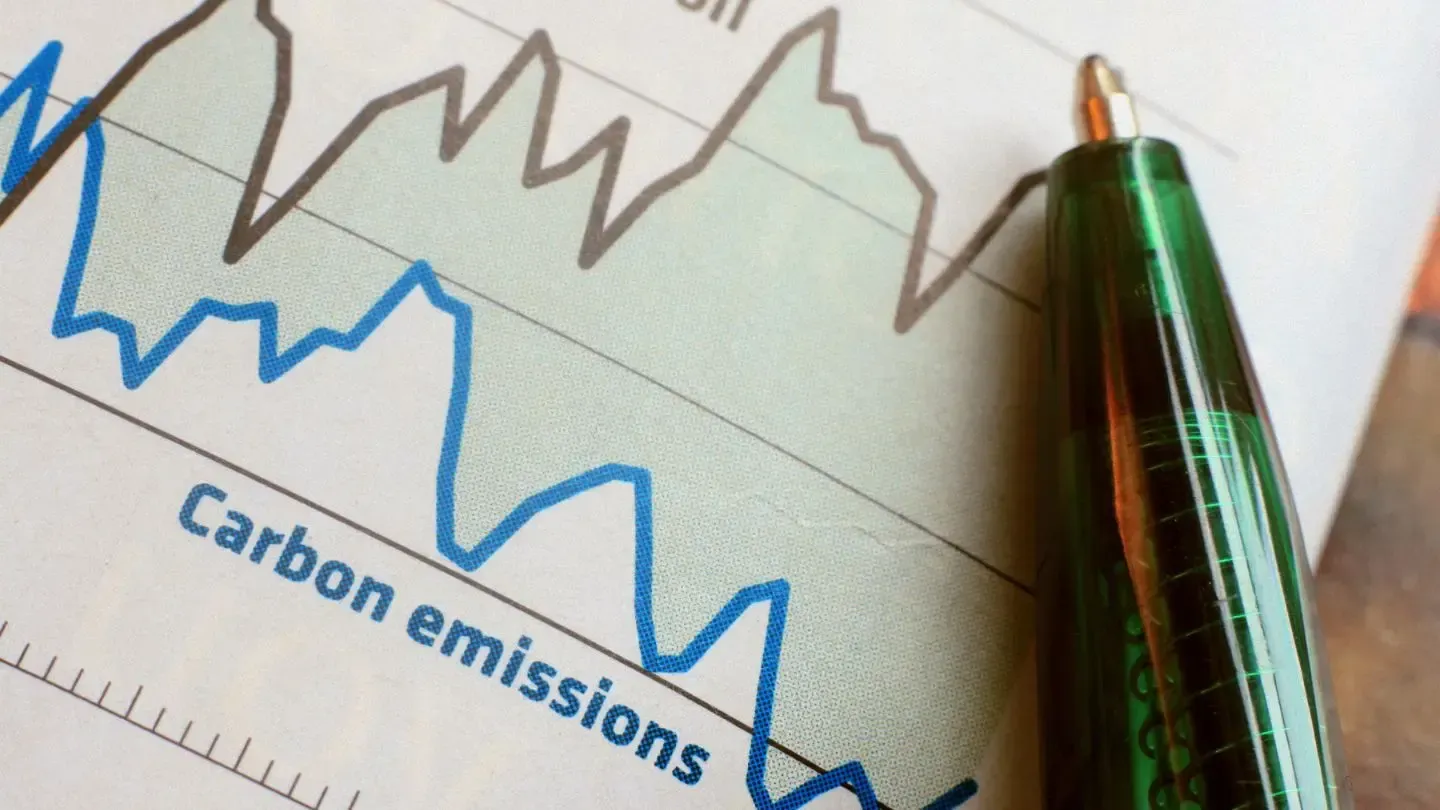Take action on climate: join forces with DETA to reduce carbon emissions
The urgency of climate action has never been clearer. As businesses across New Zealand and Australia grapple with rising energy costs, evolving regulatory requirements, and mounting pressure from stakeholders to demonstrate environmental responsibility, the question isn't whether to act, it's how to act effectively.
The business case for carbon action
Climate action represents far more than environmental stewardship. At its core, carbon reduction is about building organisational resilience and securing long-term viability. Companies that proactively address their carbon footprint are positioning themselves to thrive in an increasingly carbon-constrained economy, where consumers vote with their wallets and regulations continue to tighten.
But carbon action is more than appeasing consumers, the benefits extend across multiple areas of business:
· Reducing operational costs through improved energy management and efficiency
· Enhancing brand reputation and credibility
· Driving innovation and competitive advantage
· Fulfilling fiduciary responsibilities
· Creating employment opportunities
Most importantly, it's about future-proofing your business against the inevitable transition to a low-carbon economy.
Overcoming common barriers to climate action
Despite the clear benefits of carbon reduction, many organisations delay action based on misconceptions that DETA's proven approach systematically addresses:
It's too complex and technical: DETA's collaborative methodology breaks down complexity into manageable steps, providing clear guidance through our Carbon Roadmap framework that makes technical concepts accessible to all organisational levels.
We don't have the budget: our reinvestment strategy curves demonstrate how carbon reduction projects typically pay for themselves through energy savings and operational efficiencies, with many opportunities delivering immediate cost reductions.
We lack internal expertise: DETA's multidisciplinary team of project managers, engineers and sustainability consultants in Australia and New Zealand brings decades of cross-sector experience, eliminating the need for organisations to develop specialised capabilities internally.
Carbon reduction isn't relevant to our industry sector: DETA has delivered successful outcomes across manufacturing, logistics, agriculture, and food processing, adapting their methodology to address sector-specific challenges through tailored process optimisation solutions.
Regulatory requirements are too uncertain: DETA's deep understanding of frameworks like the NZ ETS, science-based targets, and emerging regulations provides clarity and ensures compliance strategies remain current.
We're too small to make a difference: our Carbon Kickstarter program is specifically designed for organisations of all sizes, helping smaller businesses gain competitive advantages through reduced costs, enhanced reputation, and future-proofed operations – size really doesn’t matter.

Real results, real impact
Consider the stark reality facing the Pacific region. Australia's emissions profile for 2023 shows the energy sector accounting for 75% of total emissions with agriculture adding 16% of national emissions. New Zealand's energy sector contributes 38%, with agriculture representing 53% of gross emissions. These figures underscore the critical need for targeted, sector-specific carbon reduction strategies, recognising that Australia’s emissions are dominated by energy usage, while New Zealand’s are heavily skewed towards agriculture.
Businesses in different industries (and geographical areas) clearly face distinct challenges and must adopt tailored approaches to decarbonisation. DETA works across diverse industry sectors, and our sustainability success stories demonstrate how tailored strategies deliver measurable outcomes.
Case study: Midlands Agribusiness Group
Challenge: Midlands, a group of agribusinesses, recognised the need to get ahead of the curve in analysing and reducing their carbon footprint across multiple sites.
DETA's Solution: The team conducted comprehensive carbon footprint assessments across several sites, identifying key contributors to emissions while providing expert guidance on New Zealand's carbon credit system and how the businesses could integrate with existing frameworks.
Results: DETA delivered a robust long-term carbon monitoring system and a detailed action plan outlining key steps in their decarbonisation roadmap. This proactive approach positioned Midlands to navigate the evolving regulatory landscape while identifying cost-saving opportunities through systematic carbon reduction.

Case study: Alliance Group
Challenge: Alliance Group needed to establish their first comprehensive carbon footprint assessment and develop a strategy to eliminate coal from their operations by 2030, following their public commitment in September 2019.
DETA's Solution: The initial carbon footprint assessment revealed that the majority of Alliance Group's emissions stemmed from coal consumption in their boilers. DETA then developed a comprehensive roadmap addressing this challenge through feasibility studies and business case development for fuel switching projects, evaluating both biomass and electricity alternatives alongside energy efficiency improvements.
Results: The collaboration produced a detailed decarbonisation implementation strategy developed during the Energy Transition Accelerator (ETA) programme. DETA continues to work with Alliance Group on implementation, demonstrating their commitment to long-term partnerships that extend beyond planning into actual delivery.
DETA stands apart as sustainability consultants who combine technical expertise with practical implementation experience. Our team of engineers and project managers specialise in decarbonisation, water management, process improvement, and sustainability across all sectors. What makes DETA different isn't just our technical knowledge, it's our collaborative approach that consistently delivers tangible outcomes, we proudly take the complexity out of carbon reduction for businesses, regardless of the starting point or industry sector.
Taking the first step to reduce carbon emissions
Climate action isn't just about doing the right thing; it's about doing the smart thing. The transition to a low-carbon economy is happening whether businesses participate actively or passively. The choice is whether to lead this transition or be dragged along by market forces and regulatory requirements. The time for incremental change has passed. The time for bold action is now.
DETA's collaborative approach makes it easier for organisations to take that crucial first step. Whether you need a comprehensive carbon footprint assessment, targeted energy efficiency services, or a complete carbon reduction strategy, our team provides the expertise and support needed to turn climate commitments into measurable results.
The Carbon Roadmap: your pathway to net zero
Download DETA’s free Carbon Road Map Guide by clicking here. DETA's Carbon Roadmap breaks down the journey to carbon neutrality into manageable, interconnected stages. This iterative process ensures that every step builds upon the previous one, creating momentum while delivering immediate value.
Are you ready? Let’s go
Your organisation's sustainable future starts with a single conversation. Contact DETA today and discover how carbon reduction can unlock new opportunities, drive innovation, and position your business as an industry leader. Together, we'll transform challenges into competitive advantages and build the resilient, profitable future your stakeholders deserve.





